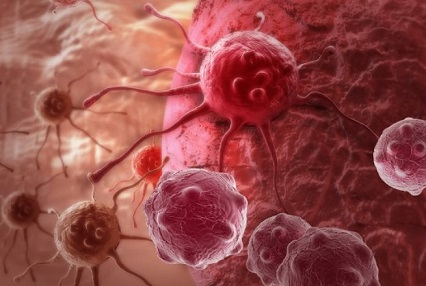New Breakthrough! Flavonoid Found to Suppress Key Gene in Aggressive Breast Cancer Cells
Nikhil Prasad Fact checked by:Thailand Medical News Team Apr 26, 2025 4 hours, 47 minutes ago
Medical News: Powerful Flavonoid Found to Shut Down Cancer Gene Activity in Breast Cancer Cells
A new study by researchers from Mexico’s Instituto Politécnico Nacional has found that a natural compound called epicatechin—a type of flavonoid commonly found in cocoa, green tea and dark chocolate—can significantly reduce the expression of a cancer-linked gene in aggressive breast cancer cells. Specifically, this compound was shown to suppress the activity of the UCP2 gene in MDA-MB-231 cells, a type of triple-negative breast cancer cell known for its resistance to treatment and rapid growth.
 New Breakthrough! Flavonoid Found to Suppress Key Gene in Aggressive Breast Cancer Cells
New Breakthrough! Flavonoid Found to Suppress Key Gene in Aggressive Breast Cancer Cells
UCP2, or uncoupling protein 2, plays a key role in controlling oxidative stress within cells. While this protein helps protect normal cells by reducing the damaging effects of reactive oxygen species (ROS), its overexpression in cancer cells has been linked to their ability to evade death, resist chemotherapy, and grow uncontrollably. This
Medical News report highlights how epicatechin affects this mechanism and may offer a potential path to new therapeutic options.
How Epicatechin Affects Cancer and Normal Cells Differently
The research, conducted by scientists from the Escuela Superior de Medicina del Instituto Politécnico Nacional, the Centro de Investigación y de Estudios Avanzados (Cinvestav-IPN), and the Escuela Nacional de Ciencias Biológicas, found that the UCP2 gene was overexpressed by more than 44 times in MDA-MB-231 cancer cells compared to normal breast epithelial cells (MCF10A). At the protein level, UCP2 was ten times more abundant in cancer cells.
When both cell types were treated with epicatechin, only the cancer cells showed a dramatic decrease in UCP2 gene and protein expression. In fact, UCP2 levels dropped sharply between 48 and 72 hours after exposure to epicatechin. Interestingly, in the noncancerous MCF10A cells, UCP2 expression actually increased during the same time period, highlighting epicatechin's selective action.
This selective suppression also correlated with cancer cell death. Viability tests showed that MDA-MB-231 cells became significantly less viable after treatment, whereas normal cells remained largely unaffected.
Mapping the Gene Switch Mechanism
To uncover how epicatechin was turning off the UCP2 gene, the researchers cloned a long promoter region of the human UCP2 gene—the DNA “switch” that controls its activity. They identified a specific 117-base-pair (bp) segment of this promoter region that responded directly to epicatechin. When this segment was attached to a luciferase reporter (a light-producing gene used to measure activity), exposure to epicatechin sharply decreased light production in cancer cells but increased it in normal cells.
This demonstrated that the 117 bp sequence contained a regulatory element that determines whether UCP2 is turned on or off in r
esponse to epicatechin. Further molecular experiments showed that epicatechin prevents certain transcription factors—proteins that activate genes—from binding to this promoter in cancer cells, while encouraging binding in normal cells.
Using bioinformatics tools and electrophoretic mobility shift assays (EMSAs), the team identified that these interactions involved proteins with zinc finger domains—common components of DNA-binding transcription factors. Adding EDTA, a chemical that interferes with zinc-based proteins, disrupted the interaction, confirming this hypothesis.
The Big Picture and Potential for Therapy
The researchers believe the selective suppression of UCP2 in cancer cells by epicatechin may disrupt a survival pathway involving PTEN and PIP3-related kinases. In cancer cells, epicatechin may activate PTEN, which inhibits a cascade that otherwise allows UCP2 expression to remain elevated and protect cells from oxidative damage. In normal cells, alternate pathways may allow UCP2 expression to increase, maintaining cellular protection without promoting cancerous behavior.
This selective action—targeting cancer cells while sparing healthy ones—makes epicatechin a promising candidate for future cancer therapies. Unlike toxic chemotherapy drugs that harm both cancerous and healthy tissues, a compound like epicatechin could offer a gentler but effective approach, especially for hard-to-treat breast cancers like triple-negative types.
Conclusion
This groundbreaking study provides the first evidence that the flavonoid epicatechin can directly suppress the UCP2 gene in breast cancer cells by targeting a specific DNA region that regulates the gene’s activity. It shows how natural compounds can be harnessed to manipulate gene expression in a precise and selective manner. With further research, epicatechin or similar molecules could form the basis of new, less toxic cancer treatments that specifically exploit genetic vulnerabilities in tumors.
The study findings were published in the peer reviewed International Journal of Molecular Sciences.
https://www.mdpi.com/1422-0067/26/9/4102
For the latest on Breast Cancer, keep on logging to Thailand
Medical News.
Read Also:
https://www.thailandmedical.news/news/new-hope-in-the-fight-against-triple-negative-breast-cancer-as-scientists-uncover-dangerous-role-of-glucocorticoid-receptor
https://www.thailandmedical.news/news/global-breast-cancer-imaging-and-screening-market-set-to-explode-as-cancer-rates-increase
https://www.thailandmedical.news/news/thailand-doctors-find-that-breast-conserving-therapy-offers-long-term-survival-for-early-stage-breast-cancer-patients
https://www.thailandmedical.news/articles/cancer
https://www.thailandmedical.news/pages/thailand_doctors_listings
